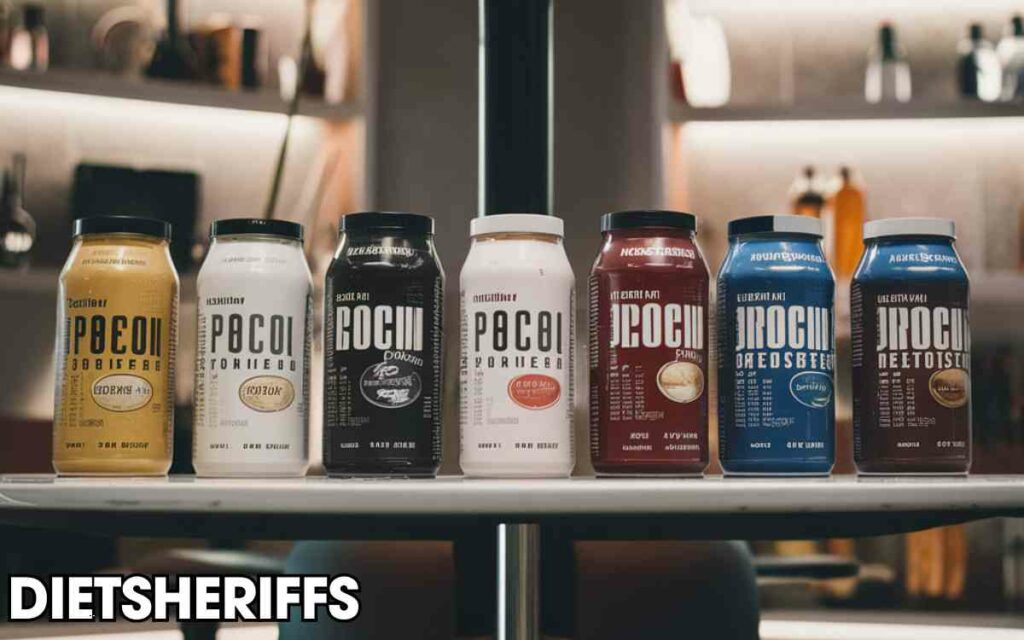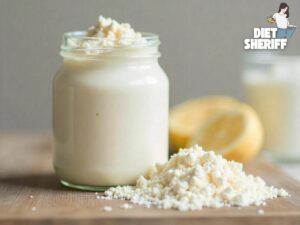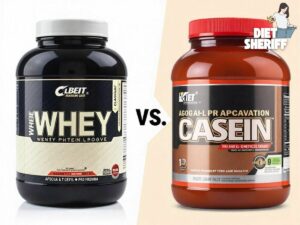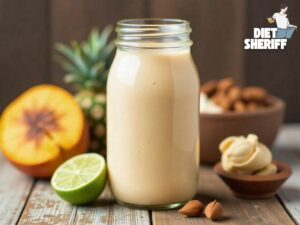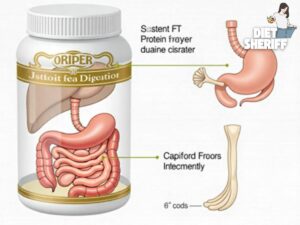Drinks high in protein are now widely available to boost general health. One common query among the many claims that: “Are protein drinks fattening?”
The idea that protein drinks might make it harder to lose weight or cause weight gain is a concern shared by many.
Understanding the many sides of protein beverages is essential, ranging from their nutrient makeup to how they affect metabolism.
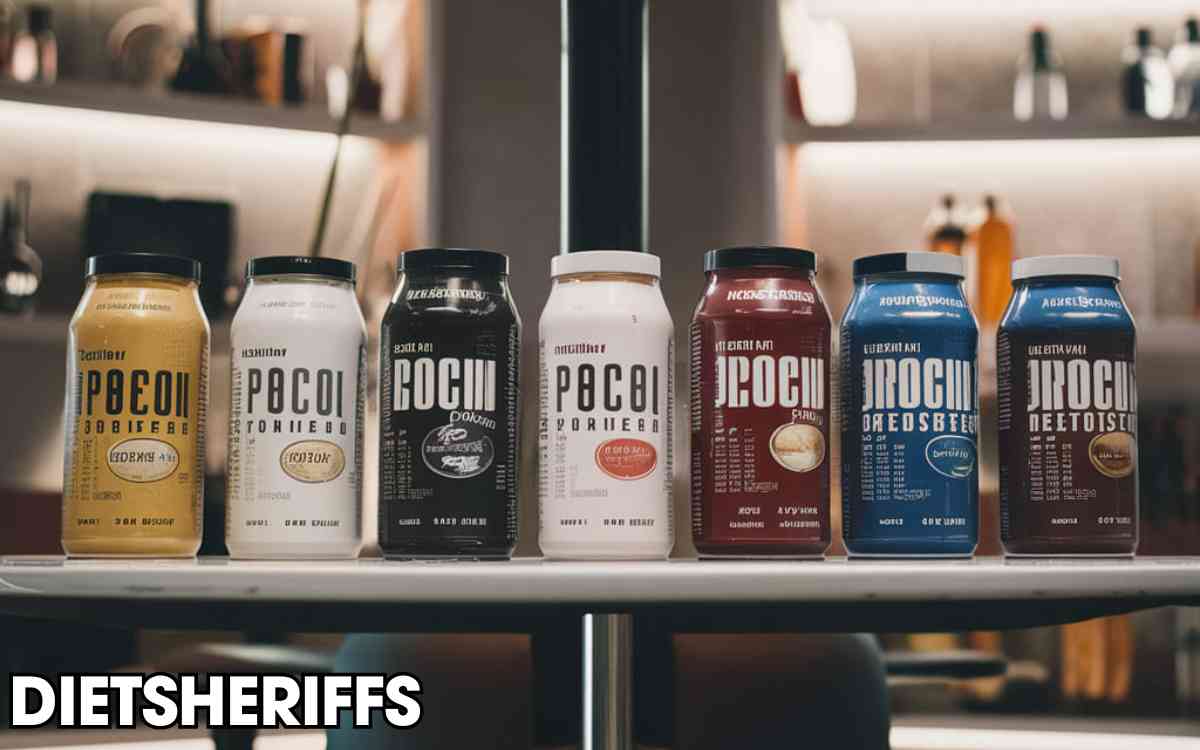
Understanding the Role of Protein in Weight Management
Protein is essential to maintaining weight. But, are protein drinks fattening? Let’s see the role of protein in weight management:
Satiety: As the most filling macronutrient, protein makes you feel fuller longer after a meal. This may result in consuming fewer calories.
Thermic Effect of Food (TEF): The thermic impact of protein is greater than that of lipids and carbs.
This indicates that when you digest and metabolize protein, your body expels more calories.
Preservation of Lean Muscle Mass: Losing fat instead of muscle is what you desire while trying to reduce your weight.
Maintaining lean muscle mass is facilitated by eating an appropriate quantity of protein.
Related Articles: How to Use Protein Powder to Build Muscle?
Increased Energy Expenditure: Research indicates that diets richer in protein can result in a greater use of energy.
Regulation of Appetite Hormones: The amount of protein consumed can affect the hormone levels that control hunger.
This might lessen desires and hunger, which would make it simpler to maintain a diet low in calories.
Muscle Repair and Growth: Protein is necessary for the growth and repair of muscle tissue.
Your total metabolic rate may rise if you have greater muscle mass.
Why Would Individuals Wonder If Protein Drinks Cause Weight Gain?
A few factors might lead people to believe that protein drinks make them fat:
Caloric Content:
- A few protein drinks, especially those containing fats, tastes and added sweets, may have high calorie content.
- Eaten in excess without taking total caloric intake into consideration, they might cause weight gain.
- Not only can that, but a high calorie intake from all sources cause weight gain.
Misinformation:
- When it comes to protein and controlling weight, there are a lot of false beliefs out there.
- Without taking into account more factors, some people may mistakenly think that protein alone causes weight gain.
Related Articles: Can You Make a Protein Shake the Night Before?
Association with Bodybuilders:
- Protein drinks are frequently linked to sportsmen and bodybuilders who include them in their high-calorie diets.
- Because of the relationship, some people might assume that protein drinks are only appropriate for those who want to gain weight.
Ingredients:
- In an attempt to enhance flavor and texture, several protein beverages on the market have artificial flavors and additional sweeteners.
- Some people may see these additional components as fattening since they raise the drink’s calorie count.
Lack of Knowledge:
- It’s possible that some people are unaware of the importance of protein in the diet.
Related Articles: Can You Put Protein Powder in Overnight Oats?
Debunking Myths Regarding Protein Drinks and Gaining Weight
There are a number of misconceptions regarding protein drinks and how they relate to gain weight. Let’s dispel the following myths:
Myth 1: Protein Drinks will Make You Bulk Up
A lot of people, particularly women, worry that eating protein shakes will make them seem very muscular.
However, the truth is that building substantial muscle growth involves more than just protein drinks—genetics and a larger caloric intake are usually required.
Unless they are drunk in excess, most people are unlikely to develop bulky muscles from protein drinks.
Myth 2: Protein Drinks Lead to Weight Gain
Gaining weight can result from taking too many calories from any source. Protein drinks do not naturally cause weight gain.
Actually, they may be a quick and easy approach to boost your protein consumption without going overboard with calories.
Myth 3: Protein Drinks are Only for Bodybuilders
Even while bodybuilders and athletes love protein drinks, anybody trying to up their protein consumption might benefit from them.
In addition to helping to boost satiety, protein is crucial for maintaining lean muscle mass during weight reduction.
Related Articles: Will Protein Powder Make Me Fat?
Myth 4: All Protein Drinks are Created Equal
Protein drinks vary from one another. Certain products could include artificial flavors, extra sugars and other ingredients that might cause weight gain diet sheriff.
Selecting protein drinks with premium components and keeping an eye on total calories is important.
Myth 5: Protein Drinks are Necessary for Everyone
Protein drinks are not a must for everyone, even if they might be a practical way to increase protein consumption.
Lean meats, fish, eggs, dairy products, nuts, and seeds are examples of whole dietary sources of protein.
For those who struggle to get enough protein from whole meals and have higher protein requirements, protein drinks could be helpful.
Choosing the Ideal Protein Drink for Your Goals
Several aspects need to be taken into account while selecting the best protein drink for your goals.
The following advice will help you choose the ideal protein drink for you:
- Determine the amount of protein you require for your desired outcomes, such as overall health and muscle growth.
- Choose a protein drink that satisfies your nutritional requirements and has a high-quality protein source.
- Aim for a protein level that supports your goals when thinking about the amount of protein in each dish.
- Choose drinks with the fewest additives possible by carefully reading the ingredient list.
- Make sure the protein drink satisfies your macronutrient objectives by considering its fat and carbohydrate levels.
- Verify that the protein drink is pleasurable by assessing its flavor and texture.
- Try out a variety of flavors and brands to determine which protein drink best suits your tastes and helps you achieve your objectives.
- Examine the protein drink’s whole nutritional profile, taking into account the amount of micronutrients it contains.
- Take into account the protein drink’s portability and ease of use, particularly if you have a hectic schedule.
- Seek for protein drinks that have passed quality and safety testing conducted by a third party.
- Consider any dietary restrictions that you may have, such as veganism or ketogenic diets, and select a protein drink that satisfies these needs.
- Examine customer reviews and testimonials to gain insight into the product’s flavor, efficacy and general level of satisfaction.
Explore Also:
Creativehouseblog
Gigasecurehome
Mycleanseplan
Are Protein Drinks Fattening – FAQs
Do all protein drinks contain dairy?
No.
If I have diabetes, can I still eat protein drinks?
Yes.
Do protein drinks include caffeine in them?
Certain protein drinks could have extra caffeine added for an increase in energy.
Does protein powder assist lessen the need to snack and fulfill cravings?
Yes.
Are protein drinks okay for those who have renal problems?
It is best to speak with a doctor before ingesting protein drinks because a high protein diet may strain the kidneys more.

